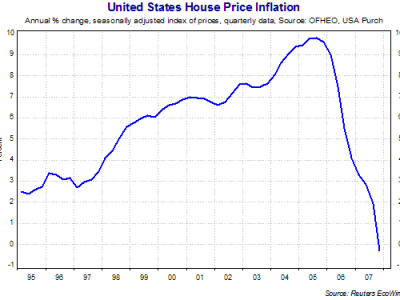Regulatory Policy
Risk Subsidies and the Future of Nuclear Power in the U.S.
Should We Take Into Account Government Subsidies that Reduce the Risks Borne by the Nuclear Industry as We Consider Our Energy Future?
As I’ve written about before, U.S. law massively subsidizes the nuclear power industry. In particular, a law called the Price-Anderson Nuclear Industries Indemnity Act dramatically skews the incentives to develop nuclear plants, and to site them in places where there is a lot of risk, because it requires the public to bear much of the …
Continue reading “Risk Subsidies and the Future of Nuclear Power in the U.S.”
CONTINUE READINGLessons from Aliso Canyon, Part II
Leaks in Regulation
Today, Southern California Gas announced it has successfully and permanently stopped the methane leak at its Aliso Canyon storage site. This marks the (fingers-crossed) end of a multi-month environmental crisis in northwest Los Angeles, causing residents to move and schools to close. Earlier this month, I blogged about the possible lessons we could learn …
Continue reading “Lessons from Aliso Canyon, Part II”
CONTINUE READINGThe Tricky Problem of Cumulative Exposures
A new UCLA report finds reason to be concerned about cumulative risk, and notes that under CA law regulators are required to act
We are all exposed to hundreds, if not thousands of chemicals through consumer products, air pollution, drinking water, and occupational exposures, just to name a few. Yet chemicals and pollutants are largely assessed and regulated individually. Increasingly, environmental health professionals have been attempting to grapple with assessing the risk of exposure to multiple chemicals. New …
Continue reading “The Tricky Problem of Cumulative Exposures”
CONTINUE READINGReflections on the Coastal Commission’s Implosion
The Implications of the Decision to Fire Charles Lester – and the Decision Not to Explain It
As Rick Frank insightfully discussed earlier this week, the California Coastal Commission has fired its former executive director, Charles Lester. Readers interested in more background information and analysis should read Rick’s post, as well as the excellent reporting by Tony Barboza and others from the LA Times. (And anyone who wants to hear about it …
Continue reading “Reflections on the Coastal Commission’s Implosion”
CONTINUE READINGCalifornia Coastal Commissioners Fire Executive Director Charles Lester
Personnel Dispute is Commission’s Biggest Political Controversy in Over a Decade
Following months of public controversy and a marathon 10 1/2 hour hearing Wednesday in Morro Bay, a closely-divided California Coastal Commission voted to fire its Executive Director, Charles Lester. The Commission vote to remove Lester was 7-5. Lester, who as Executive Director has led the Commission staff for the past 4 1/2 years, is the …
Continue reading “California Coastal Commissioners Fire Executive Director Charles Lester”
CONTINUE READINGThe Puzzling Persistence of Takings Litigation
Litigation rates dropped by only a little even when the real estate market collapsed.
Takings litigation is a bit of a puzzle. You would expect the amount of litigation to go up and down depending on the situation in the real estate market. If there’s a lot of new construction, there are more opportunities for conflict between developers and regulators. And if prices are high, so are the economic stakes, …
Continue reading “The Puzzling Persistence of Takings Litigation”
CONTINUE READINGLessons from Aliso Canyon, Part I
Regulation of the Oil and Gas Sector
Since October 23, 2015, a leak in a natural gas well has been releasing methane gas near the Porter Ranch neighborhood of Los Angeles. Although methane is invisible and odorless, gas companies add odorants to alert people to leaks, and it is these additives, usually mercaptans, that experts believe are causing the physical effects suffered by …
Continue reading “Lessons from Aliso Canyon, Part I”
CONTINUE READINGEPA Wins the First Round in Clean Power Plan Litigation
…But this is just the beginning—and the Supreme Court will have a say
As we reported last week, on January 21st, a D.C. Circuit panel denied Clean Power Plan opponents’ request for a “stay”—or temporary suspension—of the rule pending judicial review. Read the court order here. We have discussed the Clean Power Plan litigation at length on Legal Planet. As a quick refresher, the Clean Power Plan is …
Continue reading “EPA Wins the First Round in Clean Power Plan Litigation”
CONTINUE READINGBig Win For Clean Technology In The Supreme Court Today
Court validates federal rule to encourage more efficient electricy usage
The future of a clean electricity grid will require more decentralization based on clean technology, like solar and energy storage. Large industrial customers are investing in these technologies and also signing up to moderate their electricity demand in response to larger grid needs (i.e. reducing usage when electricity becomes expensive and dirty to produce). Smaller …
Continue reading “Big Win For Clean Technology In The Supreme Court Today”
CONTINUE READINGLegacy Goods and Environment Preservation
The value of some goods like wilderness today depends on their futures.
Normally, economists imagine, equal experiences become less valuable as they recede further into the future. But some types of goods don’t have that kind of relationship with future experiences. They can become more valuable as they extend farther into to the future. Take this blog post, for example. I’m really happy that you’re reading it …
Continue reading “Legacy Goods and Environment Preservation”
CONTINUE READING









